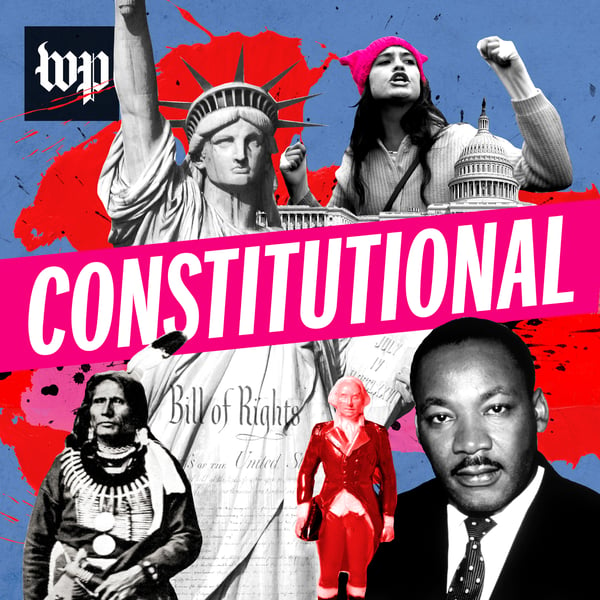Fair trials
Constitutional
The Washington Post
4.8 • 2.5K Ratings
🗓️ 9 October 2017
⏱️ 47 minutes
🧾️ Download transcript
Summary
Transcript
Click on a timestamp to play from that location
| 0:00.0 | Clarence Earl Gideon is prisoner number 003826. |
| 0:15.8 | The year is 1962 and the scene is the state prison of Rayford, Florida, not far from the |
| 0:24.6 | Georgia border. |
| 0:26.4 | Gideon is 51 years old and he's in here doing time for allegedly breaking into a pool |
| 0:33.2 | hall near Panama City, Florida, stealing some coins from the jukebox and walking off |
| 0:39.2 | with some wine from the bar. |
| 0:41.4 | He says he didn't do it. |
| 0:44.5 | But Gideon is serving five years for the crime and he's convinced that that's because |
| 0:50.4 | he had no lawyer to defend him. |
| 0:53.9 | When his case came to trial, he had actually asked the court for a defense attorney because |
| 0:59.3 | he was too poor to go out and pay for a lawyer himself, but his request was denied. |
| 1:07.1 | So Gideon had to stand up there in the courtroom all by himself, trying to cross examine witnesses |
| 1:14.0 | and present evidence, deliver a closing argument, convince the jury of his innocence. |
| 1:21.6 | It was basically impossible. |
| 1:24.4 | This was a man who had zero legal training going up against a trained state prosecutor. |
| 1:31.8 | It was also a man who had no more than an eighth grade education. |
| 1:37.7 | So Gideon lost his trial and he's in prison now for a crime he says he didn't commit. |
| 1:45.9 | Without having the help of a lawyer to defend him was wrong, he thinks, unfair, unjust. |
| 1:52.3 | He takes out a piece of lined paper provided by the prison and stamped at the top. |
| 1:58.2 | He takes out a prison issued pencil and in scratchy handwriting dotted with spelling errors |
| 2:05.6 | and grammar mistakes. |
| 2:07.9 | Gideon writes to the Supreme Court of the United States. |
... |
Please login to see the full transcript.
Disclaimer: The podcast and artwork embedded on this page are from The Washington Post, and are the property of its owner and not affiliated with or endorsed by Tapesearch.
Generated transcripts are the property of The Washington Post and are distributed freely under the Fair Use doctrine. Transcripts generated by Tapesearch are not guaranteed to be accurate.
Copyright © Tapesearch 2025.

